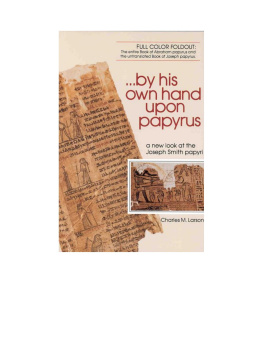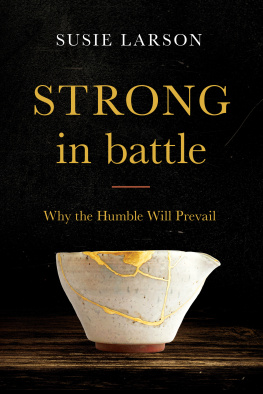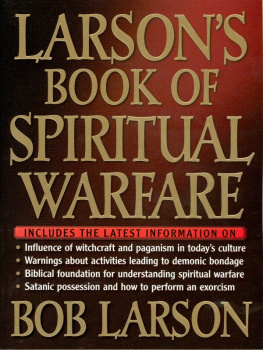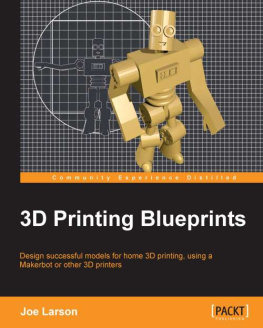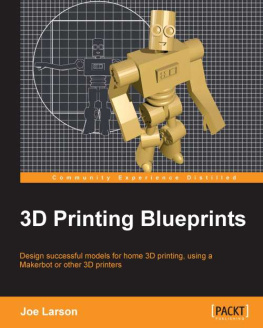Charles M. Larson - By His Own Hand Upon Papyrus
Here you can read online Charles M. Larson - By His Own Hand Upon Papyrus full text of the book (entire story) in english for free. Download pdf and epub, get meaning, cover and reviews about this ebook. year: 0, genre: Religion. Description of the work, (preface) as well as reviews are available. Best literature library LitArk.com created for fans of good reading and offers a wide selection of genres:
Romance novel
Science fiction
Adventure
Detective
Science
History
Home and family
Prose
Art
Politics
Computer
Non-fiction
Religion
Business
Children
Humor
Choose a favorite category and find really read worthwhile books. Enjoy immersion in the world of imagination, feel the emotions of the characters or learn something new for yourself, make an fascinating discovery.
- Book:By His Own Hand Upon Papyrus
- Author:
- Genre:
- Year:0
- Rating:3 / 5
- Favourites:Add to favourites
- Your mark:
- 60
- 1
- 2
- 3
- 4
- 5
By His Own Hand Upon Papyrus: summary, description and annotation
We offer to read an annotation, description, summary or preface (depends on what the author of the book "By His Own Hand Upon Papyrus" wrote himself). If you haven't found the necessary information about the book — write in the comments, we will try to find it.
By His Own Hand Upon Papyrus — read online for free the complete book (whole text) full work
Below is the text of the book, divided by pages. System saving the place of the last page read, allows you to conveniently read the book "By His Own Hand Upon Papyrus" online for free, without having to search again every time where you left off. Put a bookmark, and you can go to the page where you finished reading at any time.
Font size:
Interval:
Bookmark:
By His Own Hand Upon Papyrus
A new look at the Joseph Smith papyri
By His Own Hand Upon Papyrus Part 1
A New Look at the Joseph Smith Papyri Part 1 (Chapters 1-4)
By:
Charles M. Larson
Post date:
Copyright 1 992 Institute for Religious Research. All rights reserved.
Notice: By His Own Hand Upon Papyrus by Charles M. Larson is Copyright 1992 by the Institute
for Religious Research in both its printed and electronic forms. Users of the Mormons In Transition
Internet web site have permission to download it and make one printed copy and one computer disk
copy for their personal use. Permission may be granted to make additional copies, but only after a
request is submitted to the publisher. Please make your request in writing to the Institute for
Religious Research, 600 West Street, Cedar Springs, MI 49319, USA.
Under no conditions may this file or any reproduction of it be sold. This electronic version of the
book By His Own Hand Upon Papyrus or any derivative version may not be posted to the Internet or
other computer network without the express written permission of the publisher.
Note: This version of the text does not contain some important elements available in the printed
book, including the first published color photographs of the complete Joseph Smith Papyri
collection, as well as photographs of the original translation manuscripts, and other important
documentation. You will also notice occasional references in the text to charts, illustrations or other
graphic elements that do not appear with the text. Unfortunately, these were incompatible with the
text format of this file.
FOREWORD
One of the most exciting events in modern Mormon history was the rediscovery of some of the
Egyptian papyri which the Prophet Joseph Smith had in his possession when he produced his Book
of Abraham translations. Long thought to have been destroyed in a fire in Chicago, they had in
reality found their way to the Metropolitan Museum of Art in New York City where they resurfaced
in 1967. Their rediscovery established for certain that Joseph Smith had authentic Egyptian
documents on which he based his translation of the Abrahamic work now published in the Pearl of
Great Price.
The rediscovery of these Joseph Smith Papyri, as they have come to be known, sent scholars
rushing in all directions to explore the meaning and full implications of these texts. Articles and
books have flooded the market examining every facet of these documents.
For a long time the average reader has needed someone to bring into manageable form this mass of
material. Charles Larson has had the patience and skill to render us this service. Complications have
been reduced to understandable terms, various theories have been set forth and evaluated, and the
essential facts have always been kept before the readers eyes. To do these things with clarity requires
more than a brief pamphlet, yet Mr. Larson has kept the task within a commendably brief span. The
reader who stays with this book until the final sentence will find himself amply rewarded with a
knowledge of all the facets of these most significant documents.
Unlike the gold plates of the Book of Mormon, which scholars were never able to examine, these
Egyptian texts give us the actual documents from which Joseph Smith was working in making his
translation. Therefore, they give us the first real opportunity to examine the Prophets claims
objectively and scientifically. Mr. Larson has provided us with all the pertinent data we need to reach
our own conclusions on this much discussed and important topic.
Wesley P. Walters
How It All Began: The Mormon Story
The Mormon church began with a man who claimed a vision. For nearly nineteen centuries God
had been silent; neither his voice nor his messengers had been heard upon the earth since the days
of Christs apostles. For long ages the world had to depend upon only the Bible as a spiritual guide, a
record which many believed was poorly preserved, often improperly translated, difficult to
understand, sprinkled throughout with additions made by men, and with many plain and precious
parts lost. Forced to depend upon such a standard, the inevitable happened. Different opinions
arose, factions erupted, and the one, True Church was racked by apostasy and division. Many
splinter churches sprang up, each putting forth its own interpretation of the Bible. [1]
But one event was about to change all of this. A new, latter-day prophet a young man named
Joseph Smith was about to appear who would claim he had been given the mission of restoring
the one, True Church and the fullness of the Gospel.
An angel had appeared to Joseph Smith four years earlier and revealed the hidden location of a
sacred record, written on plates of gold. [2] These plates, when translated, would settle once and for
all the disputes which had arisen because of apostate Christendoms sole reliance upon the Bible.
This revelation, given by supernatural power to Joseph Smith, was to become a new scripture to
mankind. It would be a book pure and undefiled, translated from its ancient tongue by the gift and
power of God operating through Joseph Smith. [3]
Smith was now on his way to recover the hidden records. The time had arrived. It was the twenty-second day of September in the year 1827.
The golden plates turned out to be a record of the former inhabitants of the Americas, ancestors of
the American Indians, who had journeyed to the new world from the land of Israel hundreds of
years before the time of Christ. They had left a vivid account of their travels and wars, and of the
teachings and visions of their prophets, and even of Christs visit and ministry among them
following his crucifixion and ascension on the other side of the world, [4] knowing that these
writings would one day come forth and speak to men low out of the dust, as the voice of one
having a familiar spirit. [5]
The record, however, could not be translated by normal means or by an ordinary man. Written in a
strange, long-forgotten language called Reformed Egyptian, only a person called and blessed of God
could read and understand it.6 Joseph Smith could do so, but because of all the excitement and
misunderstanding that the discovery of the strange plates caused, and the persecutions and moving
he was forced to endure, it was more than two years before his translation was completed and ready
for publication.
Finally, in the early spring of 1830 the Book of Mormon first appeared in print and shortly
thereafter the one, Tme Church of God was re-established on the earth. [7]
But circumstances were not favorable for the little church as it stmggled to grow in those early days.
The world seemed generally either hostile or indifferent to the claim of the Restoration of the
Fullness of the Gospel, and after many months of heartfelt labor proselytizing throughout the area
around Joseph Smiths home in upstate New York, his little group had scarcely enlisted the
membership of a handful of families from his own neighborhood. [8] The missionaries ranged
farther and farther afield, selling their books and seeking their harvest of souls.
Then, for a while things began to look up. Word came from Ohio that the leader of a communal
religious society had read the Book of Mormon and converted himself, his family, and several
hundred of his followers. [9] Joseph soon moved the center of the Church from New York to the
town of Kirtland, Ohio, where the missionary effort was redoubled. One group was sent westward
Next pageFont size:
Interval:
Bookmark:
Similar books «By His Own Hand Upon Papyrus»
Look at similar books to By His Own Hand Upon Papyrus. We have selected literature similar in name and meaning in the hope of providing readers with more options to find new, interesting, not yet read works.
Discussion, reviews of the book By His Own Hand Upon Papyrus and just readers' own opinions. Leave your comments, write what you think about the work, its meaning or the main characters. Specify what exactly you liked and what you didn't like, and why you think so.

